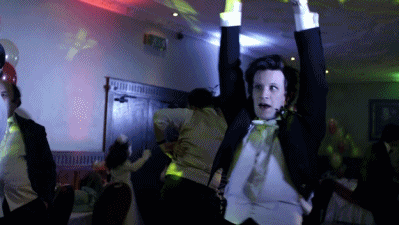LADIES AND GENTLEMEN HERE IS MY FINAL ENTRY:
I have chosen to write a historical fiction, in a style inspired by my favorite author, John Hodgman: specifically, his work entitled The Areas of my Expertise.
ON THE MATTER OF ACTORS IN WORLD WAR II
In 1941, the United States was caught off-guard by Pearl Harbor. Many Americans jumped at the call to arms, eager to participate in the war efforts. One such fellow was Charlie Chaplin, an actor famous for his work in silent film. Having been born in England, he felt terribly about the Blitz that had subjugated London, the town of his birth, but he was already 52 years old, and was not the boy he had used to be.
His chance came in January, when an emmisary from President Roosevelt approached Charlie at his luxurious estate.
“Mr. Chaplin, the president has a very important mission for you.”
His eyes, long dimmed by the dark years of the Great Depression, lit up for the first time in years.
The special emissary spoke again, “We need you to head a group of special actor-spies in a secret infiltration of the Third Reich.”
Chaplin was to infiltrate Nazi society, after which Hitler would be replaced by an Allied spy: a perfect look-alike.
“That,” said the emmisary, “will be YOU.”
Charlie was silent, as he so often was. He had not so long ago visited Europe, and was not sure he wanted to see what was left of it so soon. But his life had grown stale, his third wife, Paulette Goddard, had been drifting recently, and their relationship was cooling fast. Perhaps she would show more interest when he returned a war-hero-actor. Charlie accepted his special mission, and he and his commando team were sent to Europe immediately.
Chaplin contacted a silent-movie rival of his, Buster Keaton, to take his place in cinema and the celebrity scene. “Both Americans and Germans,” he explained, “must not know that I have left the United States. You have to take on the most difficult role of all: to play ME on the world stage.”
Keaton, who had always been jealous of Chaplin’s fame and wealth, decided that this was not only a way to serve his country, but also to perhaps revive his acting career. Keaton disguised himself as Chaplin every other day, making films under both names, while Chaplin traveled to Europe to take on his biggest challenge yet.
At first all plans went swimmingly. The team successfully planted Charlie as the head of the Third Reich, trapping the real Hitler in his own ironclad closet. But after a few days, many Nazi leaders began to be suspicious, seeing as the real Hitler never wore a bowler hat or baggy pants. People wondered why their leader had begun to walk so quickly, taking comically fast yet small steps everywhere he went. Eventually, a curious guard, investigating why the Führer had suddenly started wearing clown-size shoes, discovered the real Hitler in the closet. Charlie and his gang were busted.
Charlie spent perhaps years in a Nazi prison basement, where his moustache was shaved and his bow tie pulled uncomfortably tight on his neck. They didn’t kill him (killing an actor is one of the few war crimes Nazis were very careful to avoid), but his time as prisoner-of-war was terrible.
Eventually, he saw the man who would release him. It was Marcel Marceau, the world’s most famous mime, and member of La Résistance, who had shrugged off the Nazi’s regime in his native France. He kicked down the door without a sound, and defeated the waves of guards by hiding behind an invisible wall, and silently returning fire with his incredible invisible silent chain-gun. After freeing Chaplin, Marceau gestured for him to follow, only to escape into a ravaged Berlin and later a ravaged London. None of this devastation, however, would prepare him for what came next.
Charlie was eager to return to his old life of film, fame, and hopefully, family. He booked passage to New York, to find Buster Keaton and finally be home. When he entered New York Harbor, a celebrity tabloid caught his eye. He hadn’t seen one of these for years, and always enjoyed their striking, if not always fair, assessment of the stars. On the ninth page, he found an article that bore his own name, saying that he had been ousted as a Communist sympathizer, and had been embroiled in a paternity suit with Joan Barry, a woman he didn’t even remember meeting. He got off the boat, and sat down on the curb with his head in his hands. He felt like a relic from a time long past. He looked at all the strange clothes that people were wearing, and wondered if he belonged here anymore.




